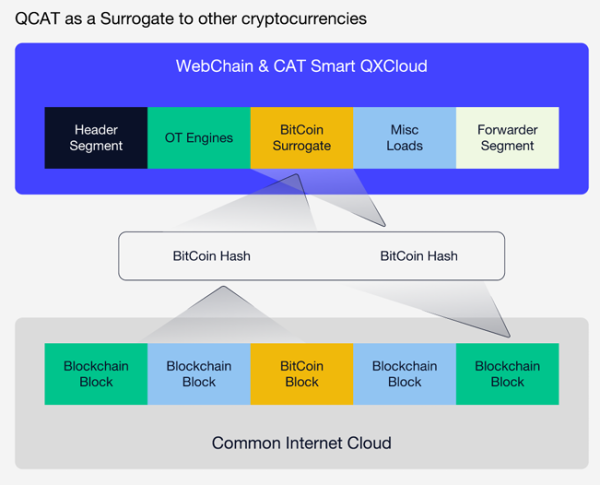Press Release
NGO Forum network and allies demand accountability from the Asian Development Bank amid Georgia’s civic space crisis

Tbilisi, Georgia May 4, 2024 (Issuewire.com) – In a bold stance against the Asian Development Bank (ADB), the NGO Forum network and its allies from across the globe unite to challenge the bank’s policies and projects, highlighting its detrimental impact on communities, environments, and civic spaces. As the ADB convenes its 57th Annual Meeting, CSOs emphasize the urgent need for accountability and reform within the institution.
The ongoing oppression of civic space in Georgia serves as a poignant backdrop to the broader critique of the ADB’s actions. Amidst oppressive laws targeting civil society in countries like Kyrgyzstan, Tajikistan, and Uzbekistan, and the shrinking civil society space in Mongolia, Vietnam, India, and Bangladesh, the ADB’s role cannot be overlooked.
CSOs demand that the ADB uphold the highest standards of Environmental and Social Safeguarding (ESF), rooted in internationally agreed-upon human rights, labor, and environmental conventions. However, the Draft ESF released in October 2023 fails to meet these standards.
The lack of transparency and accountability in the ESF consultation process raises serious concerns. Despite two years of engagement, CSOs have not seen how their inputs were incorporated into the draft policy. The ESF’s failure to commit to doing ‘No Harm’ underscores the ADB’s negligence towards environmental and social safeguarding.
Furthermore, the ESF’s ambiguous language and omission of critical processes like Environmental Impact Assessments and Social Impact Assessments raise alarms about its effectiveness in addressing project-related harms. CSOs reject the ESF draft and demand its immediate overhaul with binding requirements.
The ADB’s support for coal and fossil gas projects contradicts its climate commitments. The Energy Transition Mechanism (ETM) fails to ensure the decommissioning of coal projects or prevent their repurposing into other harmful ventures. CSOs denounce the ADB’s inaction in phasing out fossil fuel support and call for the closure of loopholes allowing coal financing.
Moreover, the ADB’s disregard for human rights, labor rights, and gender considerations further undermines its credibility. CSOs demand the integration of a human rights-based approach into the ESF, aligning with global frameworks and principles.
As the ADB conducts its safeguards review process, CSOs call for robust, just, rights-based policies with mechanisms to hold borrowers and the private sector accountable. Transparency, inclusivity, and community participation must guide ADB’s decision-making processes.
In a direct message to the ADB President and Director Generals, the Forum network and its allies urge them to prioritize the public interest and accountability. The ADB must heed the calls of affected communities, environmental defenders, and human rights advocates. ADB’s actions have real consequences on the lives and livelihoods of people across Asia and the Pacific. It is time for the Bank to prioritize people over profit, safeguard the environment, and uphold human rights.
Quotes from NGO Forum on ADB network members and allies [Please don’t forget to put the name and the organization after the quote –
The shrinking civil society space is a recent trend in the region where Russia tries to reassert its power. The laws in Kyrgyzstan, Kazakhstan, and now in Georgia undermine different freedoms and rights, including the right to freedom of association and expression, recognized and widely integrated into ADB policies and standards. It threatens ADB’s goals for 2030 for sustainable development, climate resilience, and prosperity. The laws have a chilling effect not only on media outlets and civil society organizations but also drastically worsen the investment climate, increase corruption, deteriorate governance indicators, significantly raise corruption risks, impact the sustainability of investments, and corrode business. Therefore, the response from ADB should be systemic to halt or reduce its impacts to ensure meaningful participation, freedom of assembly, and expression. For example, as the public sector in Georgia is a large recipient of ADB funds, the Bank should suspend all new funding to the public sector until the decision to pass the draft law is overturned, as it increases the risk of projects failing to meet performance standards by limiting opportunities for meaningful stakeholder participation.
– Manana Kochladze, CEE Bankwatch
At the 57th ADB Annual Meeting, we are still seeking environmental and social justice for the Tanahu Hydro Project Affected Indigenous Magar Communities, who have been pursuing justice since 2019 through the dispute resolution process with no avail. Civil society groups from Manipur are left vulnerable with no assurances that raising concerns about the Imphal road project will not lead to backlash and risk of harm. The ADB’s failed delivery of the SPS 2009 remains a reality in 2024, and we are witnessing a rush to change the architecture of the policy instead of addressing the bank’s implementation failures of the SPS. Our analysis of this ESF W paper reveals a policy that seeks to dilute binding regulations from the SPS 2009 standards through the Mitigation Hierarchy approach, allowing borrowers to bypass EIAs and SIAs prior to board approval for high and medium-risk projects. This places the environment and local communities at direct risk from all ADB project operations. The ADB’s new Gender-blind ESF, in our assessment, actually does an excellent job in safeguarding, especially ADB Bank Officials and its borrowers, just not the people or the planet.
– Rayyan Hassan, NGO Forum on ADB
In good faith we have invested two years in the ESF Consultations with the ADB’s Office of Safeguards (OSFG), but the opacity regarding the integration of CSO inputs and demands into the resulting draft policy paper is disappointing, also alarming. Despite our persistent engagement and sincere detailed input, the absence of a disclosed matrix leaves us in the dark, as to which of our comments have been considered and which have been disregarded and why! What little faith we may have liked to repose in the ADB has been lost with this lack of transparency regarding the exclusion of our inputs throughout the Phase 2 Consultation process.
Most importantly, for the communities we represent, the ESF’s vision fails to commit to the fundamental principle of doing ‘No Harm’ through ADB operations. This is a shocking disregard for the very purpose of environmental and social safeguarding right from the inception of the draft ESF W paper. It underscores the extent to which our concerns and recommendations have been blatantly ignored.
– Vidya Dinker, Growthwatch, India
ADB’s continued financing of fossil gas and large hydropower projects contradicts the global shift towards renewable energy. LNG-based power plants, despite being ten times more expensive than renewables in many Asian countries, still receive ADB funding. We demand a decisive stance: ADB must exit gas and revise its Energy Policy to prioritize a green transition devoid of fossil fuels and environmentally destructive projects. Liquid hydrogen, CCS, and Waste-to-Energy technologies, also receiving ADB financing, have proven costly and ineffective in reducing carbon emissions. It’s time for ADB to redirect public funds towards genuine solutions for a sustainable future.
- Hasan Mehedi, CLEAN (Coastal Livelihood and Environmental Action Network)
This draft safeguards policy does little to rectify the black hole that is ADB’s financial intermediary lending. Communities harmed by ADB investments have a right to seek remedy, but there can be no accountability if we can’t see where the money is really coming from. The Bank’s safeguards for intermediary lending need drastic improvement, to ensure full transparency about its involvement in all projects it funds – including clear disclosure of ADB financing at project sites and in community consultations.
-Kate Geary, Co-Director, Recourse
Almost half of ADB’s projects — 46% — have triggered involuntary displacement between 2015 and 2020. This means up to 1 million people were likely driven away from their homes, communities, and livelihoods. All without adequate compensation or solid environmental and social impact assessment. For a development bank to spend public money on poverty alleviation, this is unacceptable. ADB must do better than that, and fast.
– Dr. Nora Sausmikat, Urgewald, Germany
What has been set in 2009 as a forward looking safeguard policy for people and planet is turning into an unbreakable shield of protection for industry polluters .Instead of keeping at pace with the recent amendments of these MEAs on the standards and targets to curb the most harmful pollutants to guide the Bank and its borrowers, the draft ESF has omitted previous references to the Stockholm Convention on Persistent Organic Pollutants, the Montreal Protocol on Substances that Deplete the Ozone Layer and the Basel Convention on the Control of Transboundary Movements of Hazardous Waste and their Disposal. Moreover, it also has ignored the Minamata Convention that governs mercury which is a known byproduct of incinerator processes and ongoing talks for a Global Plastics Treaty. Instead of aligning with international law, the Bank relies on non-existent country mechanisms and capacities to govern pollution and offers pathways for continued pollution for industries through offsetting mechanisms The Bank’s adherence to just transition remains empty as well as the draft remains mum to the rights of informal workers in which developing countries rely tremendously for managing waste resources. The draft is regressive at every level in protecting the environment and preventing pollution.
- Mayang Azurn, Global Alliance for Incinerator Alternatives, Asia Pacific
For media inquiries, please contact:
Dennis Paule
09456741746
Jen Derillo
+639175088841
**NGO Forum on ADB is an Asian-led network of civil society organizations (CSOs) that has been monitoring the projects, programs, and policies of the Asian Development Bank (ADB) and the Asian Infrastructure Investment Bank (AIIB).
For more information visit: https://www.forum-adb.org/

Source :NGO Forum On ADB
This article was originally published by IssueWire. Read the original article here.
COMTEX_451871432/2777/2024-05-04T05:44:45
About Author
Disclaimer: The views, suggestions, and opinions expressed here are the sole responsibility of the experts. No Digi Observer journalist was involved in the writing and production of this article.
Press Release
Bitcoin Revolution: CAT’s WebChain Unveils Real-Time Transfers and Breakthrough Security
Bitcoin is set for a major upgrade with CAT’s revolutionary WebChain, a blockchain system enabling real-time Bitcoin transfers in just one second. Launching in late 2024, WebChain’s cutting-edge technology offers unmatched speed, security, and scalability, processing up to 15 million transactions per second. This innovation promises to transform cryptocurrency, paving the way for smarter, faster, and more secure digital economies.

Bitcoin’s slow transaction speeds are about to become history. CAT, a cutting-edge technology company led by CEO Bruce Cava, has announced the upcoming launch of WebChain, a revolutionary blockchain system that will enable real-time Bitcoin transfers in just one second. Set to debut in late 2024, this innovation is poised to transform the cryptocurrency world by delivering unmatched speed and security.
Revolutionary Breakthrough Announced by CAT
Speaking on December 17, CAT’s Vice President Lee Dong-wook shared exciting details about the company’s ambitious plans. “We aim to integrate the Bitcoin API with our WebChain mainnet by August or September 2024, or at the latest, by year-end,” he revealed. This integration will enable instant Bitcoin transactions through WebChain wallets, a move that’s already generating significant buzz in the tech and crypto sectors.
Addressing Bitcoin’s Weak Spots
While Bitcoin is a global leader in cryptocurrency, its 30-40 minute transaction confirmation times have been a significant drawback. These delays not only frustrate users but also create vulnerabilities for security risks.
WebChain is set to eliminate these issues with its groundbreaking architecture. Utilizing Java-based OT-OCN (Operation Technology-Operation Centric Network), the platform boasts the ability to handle an astonishing 15 million transactions per second (TPS)—a speed light-years ahead of Bitcoin’s current seven TPS.
Vice President Lee called the innovation “as revolutionary as the creation of Bitcoin’s Genesis Block in 2009.”

What Makes WebChain a Game-Changer?
Unmatched Speed and Security
WebChain’s OT-OCN framework, distinct from the traditional Internet’s TCP/IP protocol, ensures lightning-fast data transmission while prioritizing security and scalability. Unlike conventional systems, its name-based framework eliminates vulnerabilities like hacking and bandwidth slowdowns.
Recovering Lost Bitcoin
A standout feature of WebChain is its path-tracking capability, which lets users recover digital assets lost due to private key errors—a long-standing challenge for cryptocurrency users.
Java Powerhouse
Although Java forms the core of WebChain’s architecture, it’s unrelated to the commonly known JavaScript used in web development. The choice of Java reflects its brand appeal and its role in optimizing blockchain performance.

Endless Possibilities with WebChain
The technology’s versatility makes it ideal for a variety of applications, including:
- Smart cities and IoT devices
- International remittances
- Payment systems
- Data-intensive sectors like social media, cloud computing, and AI
With its ability to handle large-scale data transfers effortlessly, WebChain is set to become the backbone of modern blockchain solutions.
Shaping the Future of Cryptocurrency
The introduction of real-time Bitcoin transfers signals a landmark moment in blockchain history. As WebChain prepares to launch, it’s not just solving Bitcoin’s speed and security challenges—it’s setting a new standard for cryptocurrency efficiency.
With CAT’s innovative leadership, Bitcoin is taking a bold leap forward, paving the way for a more connected, efficient, and secure digital economy. WebChain is not just a step ahead; it’s a giant stride into the future of blockchain technology.
Stay tuned as WebChain’s launch in late 2024 promises to redefine what’s possible in the cryptocurrency world at CAT’s linktree, twitter and their official website.
Media Contact
Organization: QCAT
Contact Person: Bruce
Website: https://smartcat.tech/
Email: Send Email
City: California
Country: United States
Release Id: 27122422000
The post Bitcoin Revolution: CAT’s WebChain Unveils Real-Time Transfers and Breakthrough Security appeared on King Newswire. It is provided by a third-party content provider. King Newswire makes no warranties or representations in connection with it.
About Author
Disclaimer: The views, suggestions, and opinions expressed here are the sole responsibility of the experts. No Digi Observer journalist was involved in the writing and production of this article.
Press Release
Bitcoin in One Second: CAT’s WebChain Poised to Redefine Cryptocurrency Transactions
Bitcoin’s slow transaction speeds are about to become a thing of the past. CAT, a cutting-edge tech company led by CEO Bruce Cava, has unveiled plans to launch WebChain, a groundbreaking blockchain system capable of executing Bitcoin transfers in just one second. Set for release in late 2024, WebChain’s advanced OT-OCN architecture can process an unprecedented 15 million transactions per second, addressing Bitcoin’s inefficiencies while enhancing security. With real-time transfers, asset recovery features, and applications ranging from smart cities to AI, WebChain is poised to revolutionize cryptocurrency and redefine blockchain technology.

Bitcoin, the world’s first cryptocurrency, is set to overcome its long-standing reputation for slow transaction speeds. CAT, a leading American internet technology company spearheaded by CEO Bruce Cava, has announced plans to introduce a revolutionary blockchain system capable of executing Bitcoin (BTC) transactions in real time. This groundbreaking technology, named WebChain, is expected to launch in the latter half of 2024, signaling a transformative shift for cryptocurrency efficiency and security.
CAT Unveils Game-Changing Plans
Tackling Bitcoin’s Speed and Security Challenges
On December 17, CAT’s Vice President Lee Dong-wook shared the company’s ambitious roadmap to integrate Bitcoin’s API with its proprietary WebChain blockchain, which already powers the QCAT Coin cryptocurrency. “Our target is to enable real-time Bitcoin transfers via WebChain wallets by August or September 2024, or at the latest, by year’s end,” said Lee. The announcement has generated significant buzz in the tech and cryptocurrency communities, with experts hailing it as a potential game-changer for Bitcoin adoption.
Bitcoin’s decentralized nature has fueled its explosive growth, with daily transaction volumes now reaching an estimated 45 to 48 trillion KRW. However, its transaction confirmation times—averaging 30 to 40 minutes—remain a significant drawback. These delays not only waste time but also expose users to increased security vulnerabilities.
WebChain is positioned as a solution to these issues. Built on an advanced Java-based OT-OCN (Operation Technology-Operation Centric Network) framework, the platform promises unparalleled efficiency and security, handling an astonishing 15 million transactions per second (TPS). “This achievement is as significant as Satoshi Nakamoto’s creation of Bitcoin’s Genesis Block in 2009,” remarked Lee.

The Technology Behind WebChain
Revolutionary OT-OCN Framework
WebChain’s architecture is a departure from the traditional Internet’s TCP/IP protocol, emphasizing operational efficiency and robust security. Unlike address-based systems, WebChain operates on a name-based framework, drastically reducing the risk of hacking and enabling seamless data transmission regardless of bandwidth constraints. This makes it a viable backbone for applications ranging from IoT devices to smart city infrastructure.
Why Java?
While WebChain uses Java-based technology, it bears no relation to JavaScript, the common language for web development. The term “Java” was chosen for its brand resonance, reflecting the platform’s innovative approach to optimizing blockchain functionality.
Unmatched Performance and Security
Speeding Past Bitcoin’s Limitations
Bitcoin’s current transaction speed of just seven TPS pales in comparison to WebChain’s capabilities, which can process up to 15 million TPS. Remarkably, the system becomes even more efficient as network activity increases, making it ideal for scaling cryptocurrency usage globally.
Recovering Lost Digital Assets
Another standout feature of WebChain is its path-tracking functionality, allowing users to recover assets lost due to private key mismanagement. This capability sets a new standard for blockchain security and reliability, addressing a common pain point for cryptocurrency users.

Expanding Blockchain’s Horizons
WebChain’s technological prowess extends far beyond Bitcoin. Its high-speed and high-security architecture positions it as a versatile platform for various industries. From powering smart cities and facilitating international remittances to enhancing payment systems and supporting AI-driven applications, WebChain is poised to redefine the possibilities of blockchain technology.
Paving the Way for the Future of Blockchain
The advent of real-time Bitcoin transfers marks a pivotal moment in blockchain history. As artificial intelligence and data-intensive technologies continue to evolve, WebChain’s robust OT-OCN foundation offers a scalable, secure, and seamless solution for modern digital economies. This innovation could set a new benchmark for blockchain performance, boosting adoption across industries and user bases.
With CAT’s visionary approach, Bitcoin is not only addressing its limitations but is also pioneering a more efficient and interconnected future for cryptocurrencies. WebChain’s launch promises to catalyze a transformative shift, revolutionizing blockchain technology and paving the way for a faster, safer, and more adaptable digital economy.
Media Contact
Organization: QCAT
Contact Person: Bruce
Website: https://smartcat.tech/
Email: Send Email
City: California
Country: United States
Release Id: 27122421998
The post Bitcoin in One Second: CAT’s WebChain Poised to Redefine Cryptocurrency Transactions appeared on King Newswire. It is provided by a third-party content provider. King Newswire makes no warranties or representations in connection with it.
About Author
Disclaimer: The views, suggestions, and opinions expressed here are the sole responsibility of the experts. No Digi Observer journalist was involved in the writing and production of this article.
Press Release
IdeaConcert Revolutionizes Storytelling with Nabiche: The AI Tool Transforming Fairy Tales into Animated Masterpieces
IdeaConcert introduces Nabiche (https://nabiche.com/), an AI-powered platform that transforms static fairy tale illustrations into dynamic animations. With features like text extraction, inpainting, and motion effects, Nabiche simplifies video creation for authors, illustrators, and educators. Currently in a free demo phase, the platform aims to inspire creativity, enhance children’s education, and redefine storytelling worldwide.

IdeaConcert, led by CEO Jeon Dae-yong, has announced the launch of Nabiche (https://nabiche.com/), a revolutionary AI-powered platform that transforms the way fairy tales are brought to life. Nabiche reimagines storytelling by turning static illustrations into vibrant animations, simplifying video production for creators across the globe.
A New Era of Storytelling
Nabiche harnesses cutting-edge AI technology to make video creation accessible for authors, illustrators, and educators. Its standout features include:
- Automatic Text Extraction: Seamlessly converts storybook content into editable text.
- Inpainting Technology: Refines visuals and integrates elements effortlessly.
Users can upload images or storybooks, generate animated layers for characters and backgrounds, and enhance their creations with motion effects, narration, and background music. The platform allows for easy export of professional-quality video content, empowering storytellers of all skill levels.
Inspiring Creativity and Education
Nabiche’s interactive storytelling capabilities make it a perfect tool for educators and content creators. The platform’s videos stimulate children’s imagination, support emotional growth, and enrich educational experiences.

A Global Vision for the Future
CEO Jeon Dae-yong shared his ambitious vision for Nabiche:
“We believe technology, especially AI, should empower creators to unlock their full potential. With Nabiche, we hope to inspire storytellers worldwide and ignite the imagination of children across cultures.”
In its free demo phase, Nabiche has already produced 12 AI-generated videos. By March 2025, IdeaConcert plans to release 50 additional works and adapt 89 fairy tales from 50 countries, solidifying its position as a global leader in digital storytelling.
Empowering the Creative Community
Nabiche is more than a tool—it’s a gateway to creativity. By eliminating barriers to high-quality video production, it enables authors, illustrators, and publishers to explore new dimensions of storytelling while fostering cultural exchange.

Get Started Today
Discover how Nabiche is shaping the future of storytelling. Visit https://nabiche.com/ or contact CEO Jeon Dae-yong at ideaconcert@ideaconcert.com for more information or to request samples of AI-generated videos.
With Nabiche, the possibilities for creative storytelling are limitless. Explore the future of animation and bring your stories to life today!
Media Contact
Organization: Idea Concert CO.,LTD
Contact Person: Jeon Dal Yong
Website: https://nabiche.com
Email: Send Email
City: Seoul
Country: Korea South
Release Id: 27122421995
The post IdeaConcert Revolutionizes Storytelling with Nabiche: The AI Tool Transforming Fairy Tales into Animated Masterpieces appeared on King Newswire. It is provided by a third-party content provider. King Newswire makes no warranties or representations in connection with it.
About Author
Disclaimer: The views, suggestions, and opinions expressed here are the sole responsibility of the experts. No Digi Observer journalist was involved in the writing and production of this article.
-
Press Release5 days ago
Electric Pioneer.USDT Revolutionizes New Energy Vehicle Data Management
-
Press Release6 days ago
Innovative Visionary Vineet Byakod Leads Vineet Byakod Marketing’s Expansion with a Focus on Delivering Tailored Marketing Solutions
-
Press Release6 days ago
Virturo Elite Club: Unlock Exclusive Wealth-Building Opportunities for High-Net-Worth Individuals
-
Press Release1 week ago
Jaynike Pioneers Digital Transformation with Comprehensive Web Solutions
-
Press Release6 days ago
Virturo Continues to Redefine CFD Trading with Cutting-Edge Technology and Professional Expertise
-
Press Release6 days ago
Electric Pioneer.USDT Drives Data Assetization and Industry Intelligent Upgrades
-
Press Release5 days ago
Yepbit Exchange Strengthens Transparency and Security with UK Registration
-
Press Release6 days ago
Elevate My Mind Fresh Uplifting New Single



